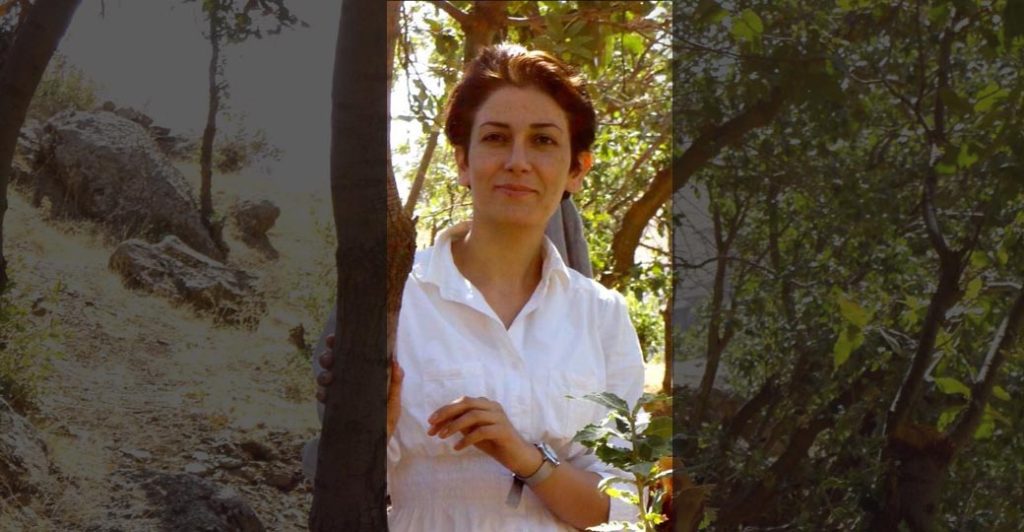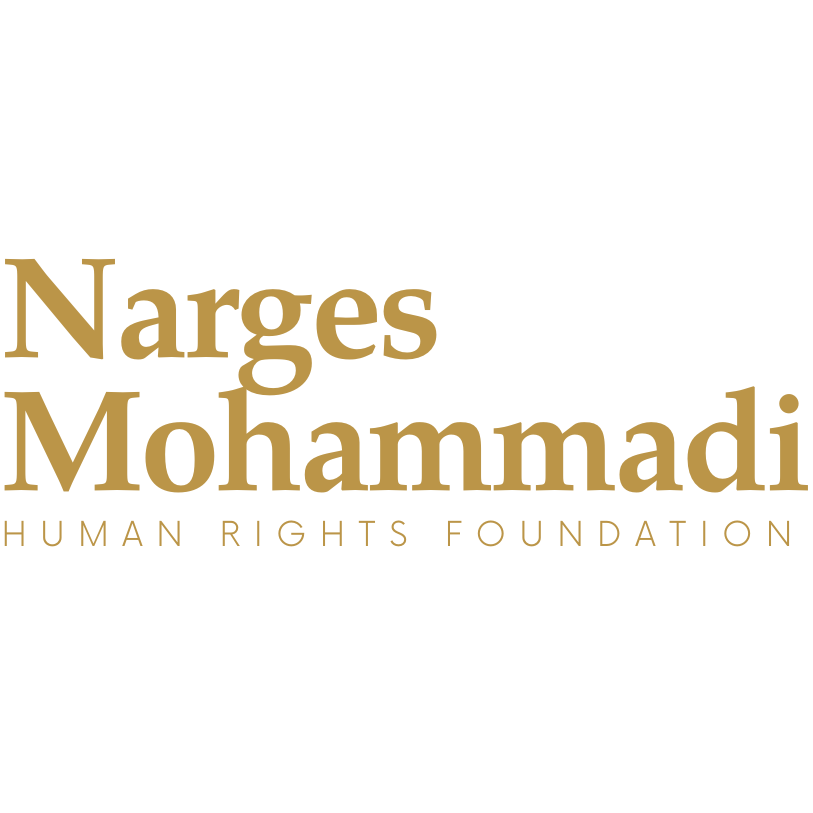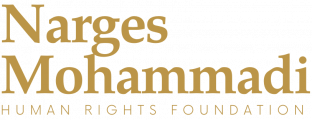
Narges Mohammadi Reacts to Pakhshan Azizi’s Sentence: ‘We Must Unite Against Executions in Iran
“Narges Mohammadi Reacts to Pakhshan Azizi’s Sentence: ‘We Must Unite Against Executions in Iran'”
Last night, 11th January 2025 in an audio space on X (formerly Twitter), exclusively coordinated by the family of Pakhshan Azizi to rally support for her, numerous human rights activists, lawyers, and women’s rights advocates from around the world participated. Among the speakers was Narges Mohammadi, Nobel Peace Prize laureate, who is temporarily out of prison but is expected to return soon.
In her heartfelt message, Mohammadi emphasized the importance of unity and solidarity in opposing the escalating executions in Iran, including the unjust sentencing of Pakhshan Azizi. She highlighted the resilience and courage of political prisoners, particularly women, who continue to resist repression within the confines of Evin Prison and beyond.
Her audio statement resonated with the audience, urging the international community and human rights defenders to amplify their efforts to stop the use of the death penalty as a tool of oppression.
You can read her full audio message here:
Here is her full message:
“Hello, everyone. Tonight, we have gathered to discuss Pakhshan and the issue of executions. I will start by talking about Pakhshan and then move on to the broader topic of executions.
Pakhshan was held in the notorious Evin Prison, specifically in Ward 209 under the Ministry of Intelligence. She endured severe torture—physical abuse, mental pressure, and repeated hunger strikes. When she was finally transferred to the women’s ward, her body was frail, but her spirit remained unshaken. Upon her arrival, she introduced herself with pride, saying, “I am Pakhshan, a social worker.”
[00:48.3]
Her actions and way of life were proof of her words—she truly was a social worker in every sense, even within the confines of Evin’s women’s ward.
[01:06.9]
Pakhshan is full of life, always striving to create meaning, to make life more beautiful and purposeful. After receiving her execution sentence, I remember having a conversation with her. Her words gave me a profound understanding of resistance, struggle, and the essence of life.
[01:40.2]
One particular sentence remains etched in my mind. After hearing about her sentence, we protested in the ward. Pakhshan, with her loud and beautiful voice, led the chants. Her energy was infectious. If someone had overheard us at that moment, they would never have guessed that she had just learned of her own execution sentence. With unmatched strength, she declared, “This is all part of living. Resistance is intertwined with life, and for me, it’s a continuation of living.”
That night, the women’s ward of Evin Prison erupted in protest. Our chants and slogans filled the prison yard and echoed into the night sky. The guards repeatedly tried to disperse us, urging us to return to our cells, but we refused. That night, we disrupted the prison’s order.
[03:34.7]
Until midnight, over 40 women stood in the yard chanting and singing songs of resistance. Even after midnight, 25 women remained in the yard, refusing to leave. It was an extraordinary act of defiance—a night that will remain in the memories of all who were there and in the history of the women’s ward of Evin Prison.
[04:10.0]
Now, returning to the broader issue of executions: we know that executions have been on the rise in recent years, particularly in the last few months. Political prisoners on death row number in the dozens. The frequency of execution sentences across the country has drastically increased, and 2024 is set to be the year with the highest number of women executed—especially political and ideological prisoners.
[05:01.6]
This alarming trend underscores the urgency for human rights defenders to act. The Islamic Republic uses executions as a tool of fear and oppression to silence dissent and maintain control. At this point, unity, solidarity, and cooperation among groups, movements, and individuals—both inside and outside the country—are crucial. We must come together with a shared goal: to oppose executions and amplify the voices of resistance.
[06:18.1]
The Islamic Republic shows no willingness to improve its human rights record or reduce its reliance on executions. The responsibility, therefore, falls on us—human rights defenders and advocates for justice. We must build a powerful collective force to slow the pace of executions and, ultimately, bring them to a halt.
[07:13.6]
We call on all human rights organizations and the international community to support those opposing the death penalty in Iran. Be the voice of political prisoners and those on death row. Pressure the Islamic Republic to stop executions and uphold the right to life.
Let us strengthen our cooperation and amplify one another’s voices. May we one day witness a time when there are no nooses, no death sentences—only conversations about life and the right to live.
Thank you.”
Narges Mohammadi
11th Jan 2025
Tehran – Iran


